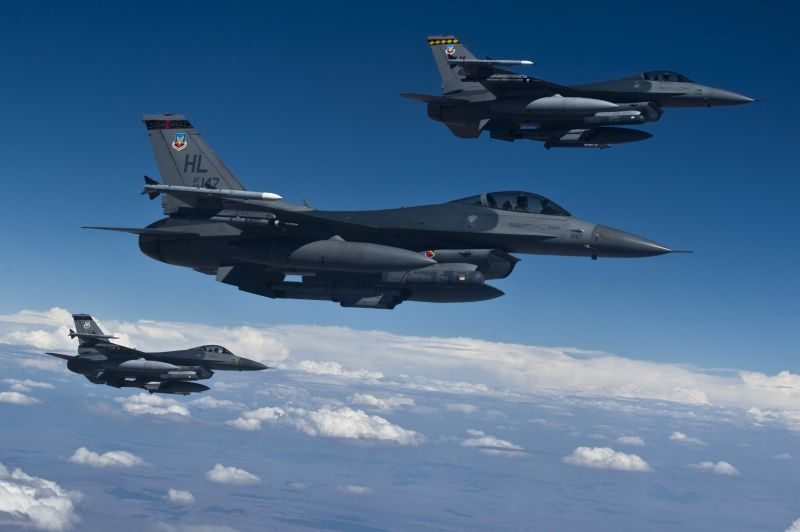Before the sun rises, the sound of an F-16 Fighting Falcon can be heard taking off, breaking the dull silence of the morning as they participate in a two week close-air support training exercise with various squadrons and units.
Known as CAS, the training uses military aircraft in an attack against enemy ground forces that are in close proximity to friendly forces. This requires detailed coordination with ground troops and is typically conducted by joint terminal attack controllers. The use of CAS during wartime can be a critical strategic military tactic that has serious impacts on the outcome of ground warfare.
All pilots assigned to the 31st Fighter Wing are participating in this training exercise with each pilot expected to fly approximately four hours a day. During the exercise, pilots fly as low as 1,000 feet and communicate with JTACS on the ground who are calling in simulated air strikes.
“It’s a great opportunity to be able to participate in this training,” said Capt. Connor Flynt, the 510th Fighter Squadron standards and evaluation chief. “We are accomplishing a great amount due to the training we are receiving. And all the work that is being done behind the scenes is much appreciated.”
This training includes coordination with various units such as the 31st Security Forces Squadron, 31st Maintenance Squadron and the 31st Aircraft Maintenance Squadron.
The training not only included Aviano Airmen, but Army paratroopers from the 1st Battalion, 503rd Infantry Regiment and the 173rd Airborne Brigade Combat Team, as well as Airmen stationed at Ramstein Air Base, Germany.
The training included jumping from a C-130 Hercules, clearing airport areas, aircraft landing, loading service members and departure. Once on the ground, Airmen and Soldiers then participated in an airfield seizure training operation on Rivolta Italian air force base.
“This is a very unique exercise because it’s rare that we get to fly with all these different agencies,” said Lt. Col. Christopher Austin, 510th Fighter Squadron commander. “This training helps practice what we would be doing if we are called in for a deployment.”
In order for the exercise to go off without a hitch, Airmen worked around the clock to ensure jets were ready and mission capable. From sunset to sunrise, maintainers were on the flightline armed with flashlights and tools ready to service, refuel and perform routine maintenance on any jet that needed it.
According to Flynt, their skills and assistance are an essential part of the exercise because without them, jets would not be able to fly rendering the exercise itself obsolete. In all, maintainers serviced more than 30 jets during the exercise and up to six jets a day.
“I want to say thank you to everyone on base that made this training realistic,” said Austin. “This training was not easy to coordinate and I’m very grateful for the opportunity. I believe that this training saves lives and we have been given the chance to do just that.”











